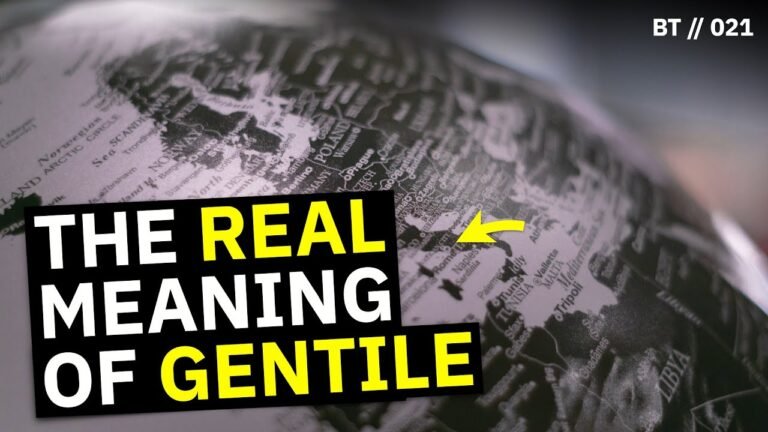Understanding Jezebel: Historical and Cultural Perspectives
Jezebel, a name steeped in history and cultural significance, often evokes strong imagery and complex narratives. Originating from the biblical figure known for her defiance and ambition, the term has evolved to represent various themes in literature, feminism, and societal critique. This article will explore the multifaceted interpretations of Jezebel, delving into her impact on modern culture, the ongoing debates surrounding her legacy, and what she symbolizes in today’s discourse on female empowerment and morality. Join us as we unravel the enduring fascination with this iconic figure and discover what Jezebel truly represents in our contemporary world.
What is Jezebel famous for?
Jezebel, a figure steeped in historical and biblical significance, was the daughter of Ethbaal, the priest-king of the Phoenician cities Tyre and Sidon. Her marriage to King Ahab of Israel marked a pivotal moment in the religious landscape of the region. As queen, she wielded considerable influence and used her power to promote the worship of Baal-Melkart, a nature god revered in her homeland.
Her impact on Israelite society was profound and controversial. Jezebel’s efforts to elevate Baal worship were met with fierce resistance from the prophets of Yahweh, leading to a violent clash of faiths. In a bid to consolidate her religious agenda, she ordered the execution of many Yahweh prophets, further intensifying the conflict between the two belief systems.
Jezebel’s legacy is one of both ambition and infamy. Her actions not only transformed the religious practices of Israel but also earned her a reputation as a symbol of moral corruption and idolatry. Over time, her name has become synonymous with treachery and manipulation, illustrating the lasting impact of her reign on both history and cultural narratives.
What was the sin of Jezebel?
Jezebel’s sin epitomizes the dangers of leading others astray through deceit and temptation. In Christian tradition, she is often seen as a symbol of paganism and apostasy, using her influence to entice the faithful into practices of idolatry and sexual immorality. Her legacy serves as a cautionary tale about the perils of manipulation and the profound impact of one individual’s choices on the spiritual integrity of a community. This association with promiscuity further solidifies her role as a figure representing the moral decay that can arise when power is wielded for corrupt purposes.
What is the Bible’s perspective on Jezebel?
Jezebel, a figure rooted in the Old Testament, is often depicted as a powerful and manipulative queen who led Israel into idolatry and moral decay. Her story serves as a cautionary tale about the dangers of unchecked ambition and the consequences of turning away from faith. Through her actions, she exemplified rebellion against God’s commandments, leading to her infamous legacy.
In the New Testament, Jezebel resurfaces in Revelation 2:20, where she is portrayed as a prophetess who misguides believers. Encouraging them to engage in immoral conduct and partake in pagan rituals, her influence is a stark reminder of the enduring battle between faithfulness and temptation. The reference highlights the persistent nature of such corruption throughout history, illustrating that her spirit continues to challenge the faithful.
Over time, Jezebel has become emblematic of shamelessness and seduction, representing a broader cultural archetype of the dangerous woman. Her name evokes strong imagery and serves as a warning against the perils of straying from righteousness. The legacy of Jezebel endures, reminding society of the importance of discernment and moral integrity in the face of alluring but destructive influences.
Unraveling the Myths of a Biblical Icon
Throughout history, the figure of Moses has been a central character in religious texts, often shrouded in myth and legend. Many view him exclusively as the leader who parted the Red Sea or received the Ten Commandments on Mount Sinai. However, these stories can overshadow the complexities of his life and the socio-political context in which he operated. Understanding Moses requires us to peel back the layers of tradition and explore the historical realities that shaped his leadership and the legacy he left behind.
Moses was not just a prophet; he was a multifaceted leader who navigated the challenges of liberation and governance. His journey from the courts of Pharaoh to the wilderness of Sinai reflects the struggles of an oppressed people seeking freedom. The narratives surrounding his life invite us to consider the broader implications of his actions, such as the quest for justice and the importance of communal identity. This perspective reveals Moses as a figure who embodies resilience and moral conviction, essential qualities for any leader in times of crisis.
In reexamining Moses, we also confront the ways in which his story has been interpreted and reinterpreted throughout the ages. The myths that surround him often reflect the values and struggles of the times in which they were told. By unraveling these myths, we can appreciate not only the historical Moses but also the enduring relevance of his story in contemporary discussions about faith, leadership, and social justice. Ultimately, Moses stands as a testament to the power of belief and the human spirit’s capacity to overcome adversity.
Jezebel Through the Ages: A Cultural Lens
Jezebel, a figure steeped in complexity, has transcended her biblical origins to become a symbol of defiance and empowerment. Historically portrayed as a manipulative queen, her legacy has evolved to reflect the struggles of women throughout the ages. From the ancient texts that condemned her, to feminist reinterpretations that celebrate her boldness, Jezebel serves as a mirror reflecting societal views on female power and sexuality. Her story raises questions about morality, agency, and the often double-edged nature of female influence.
In various cultures, Jezebel’s name has been invoked to describe women who challenge patriarchal norms, often facing vilification as a result. This duality highlights the tension between admiration and disdain that powerful women encounter, a theme that resonates in literature, film, and art. As a cultural lens, Jezebel reveals the ways in which society grapples with the concept of female autonomy. The narratives surrounding her have inspired countless interpretations, each adding layers to her identity and emphasizing the ongoing battle for women’s rights and representation.
Today, Jezebel is reimagined in contemporary discussions about feminism and gender dynamics. She embodies the complexities of modern womanhood, where ambition and assertiveness can still provoke backlash. As we continue to explore her legacy, Jezebel challenges us to rethink our perceptions of women who dare to defy expectations. Her enduring presence in cultural discourse not only invites critical reflection but also empowers future generations to reclaim their narratives, reminding us that the conversation around female empowerment is far from over.
The Enduring Legacy of a Controversial Figure
Throughout history, certain figures evoke both admiration and criticism, leaving behind a complex legacy that continues to spark debate. This is particularly true for those who challenged societal norms and pushed boundaries, often facing backlash for their radical ideas. Their contributions, while sometimes controversial, have paved the way for progress and innovation, influencing generations to come. The duality of their impact serves as a reminder of the intricate relationship between visionaries and the societies they seek to transform.
As the years pass, the narratives surrounding these figures evolve, often reflecting the changing values and perspectives of contemporary culture. What was once viewed with skepticism may later be celebrated as visionary, illustrating the fluid nature of legacy. This ongoing reevaluation underscores the importance of engaging with history critically, recognizing that the marks left by controversial figures can ignite conversations that foster growth and understanding. Their stories challenge us to confront our own beliefs and inspire us to consider the bold paths that shape our collective future.
Feminine Power and Perception in History
Throughout history, the perception of feminine power has evolved, often reflecting societal values and cultural norms. From the reign of powerful queens to the quiet strength of women in grassroots movements, women have continually shaped the course of history, even when their contributions were overlooked. Feminine power is not just about authority; it encompasses resilience, creativity, and the ability to influence change in subtle yet profound ways. As we reassess historical narratives, it becomes clear that the recognition of women’s roles is clave to understanding the full tapestry of our past, inspiring future generations to embrace their own strength and potential.
From Scripture to Society: Jezebel’s Impact
Jezebel, a figure synonymous with manipulation and defiance in biblical narratives, has left an indelible mark on both scripture and societal norms. Her story transcends religious texts, influencing modern interpretations of power dynamics, gender roles, and moral complexities. Often depicted as the archetype of wickedness, she serves as a cautionary tale about the dangers of ambition unchecked by ethics. Yet, her legacy prompts a reevaluation of female agency, challenging the simplistic villain narrative and inviting discussions on the multifaceted roles women play in both history and contemporary society. As we explore the enduring impact of Jezebel, we uncover how her story continues to resonate, prompting reflection on the interplay between cultural perceptions and personal identity.
Understanding what Jezebel represents transcends the biblical narrative, revealing a complex figure that embodies both empowerment and vilification. Her story invites us to explore themes of femininity, power, and societal judgment, prompting a deeper conversation about the roles women play in history and culture. By examining Jezebel through various lenses, we gain insight into the enduring impact of her legacy and the lessons it holds for contemporary discussions on gender and identity.







